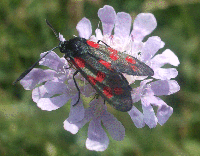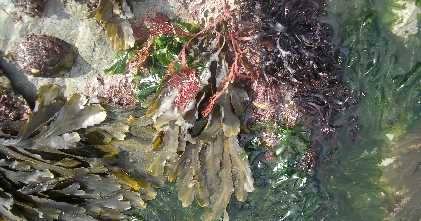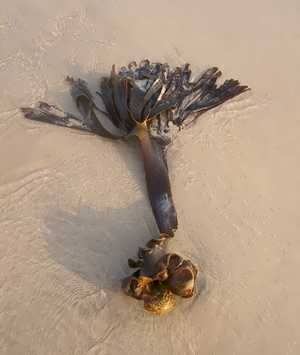When to Watch Wildlife |
J | F | M | A | M | J | J | A | S | O | N | D | Search |
|
Current wildlife highlights |
||
|
What's new on this site |
||
|
Wildlife calendar |
||
|
Plants and Animals |
||
|
Habitats |
||
|
Wildlife sites |
||
|
WWW links |
||
|
Guide Books |
||
|
||
|
© PMcS 2006 |
|
Sea and the seashore |
||||||||||||
| For a fun trip into the world of the seashore visit the BBC's interactive coast game | ||||||||||||
|
Find out about:
It must be the memories of searching rock pools on summer holidays or eating sticks of rock on the pier, but whatever it is the seaside holds magical memories for many.
The British coast and the seas around it are internationally important for wildlife. They incorporate salt marshes, coastal lagoons, muddy estuaries, sandy, shingle and rocky beaches, cliffs, areas of landslips, isolated sea stacks and islands, submaritime zones (i.e. land influenced by sea spray) and of course the sea (marine) environment itself. These habitats, more than most, experience rapid changes and severe environmental stresses. This influences the species that can survive within these habitats. Our coasts are subject to high winds, large waves, large tidal ranges (the distance between high and low tide), two tides a day and a high level of pebbles. This characterises the marine zone the in Britain, which is different from other coastal locations in the world. Whilst the geology is fascinating, this web site leaves that to others to describe.
For us its the curious and varied life in those rock pools which seem like small worlds of their own that hold our interest; at the top of the beach, where the sea is at its furthest reach, the strand line can produce endless possibilities packed with flotsam and jetsam; the sea cliffs, islands and sea stacks that in summer clammer with breeding sea birds such as razor bills, guillemots and kittiwakes; rock doves hunted by swooping peregrine falcons; the estuaries that on bitter winter mornings are swarming with waders and ducks furiously seeking food to keep one foot ahead of starvation; and the sea with common and grey seals, dolphins and basking sharks, fish, seaweeds and starfish. |
||||||||||||
|
|
All images and text are copyright PMcS 2006


